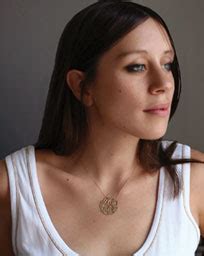A Quote by Jonathan Galassi
One thing I have noticed is that when you're a younger editor, you're more intense about it. As you go along, you relax a little. More and more, I feel that the book is the author's. You give the author your thoughts, and it's up to him or her to decide what to do.
Related Quotes
Reading a book should be a conversation between you and the author. Presumably he knows more about the subject than you do; if not, you probably should not be bothering with his book. But understanding is a two-way operation; the learner has to question himself and question the teacher, once he understands what the teacher is saying. Marking a book is literally an expression of your differences or your agreements with the author. It is the highest respect you can pay him.
Frequently, an author gets "orphaned" at a publisher. What this means is that an editor buys their book, then ends up getting fired, promoted, or transferred to a different job somewhere else. It sucks for the author because suddenly the person who liked your book enough to buy it isn't around to help you edit and promote it.
I didn't write my book, 'I Don't Care About Your Band,' in order to give women a brand-new set of dating rules they need to feel terrible about not abiding. I wrote my book to make the women who read it feel good about themselves, and a little more entitled to be treated well by the guys they go out with.
When I read a novel that I really like, I feel as if I am in direct, personal communication with the author. I feel as if the author and I are on the same wavelength mentally, that we have a lot in common with each other, and that we could have an interesting conversation, or even a friendship, if the circumstances permitted it. When the novel comes to an end, I feel a certain letdown, a loss of contact. It is natural to want to recapture that feeling by reading other works by the same author, or by corresponding with him/her directly.
Whether the author intended a symbolic resonance to exist in her book is irrelevant. All that matters is whether it's there. Because the book does not exist for the benefit of the author, the book exists for the benefit of YOU. If we as readers can have a bigger and richer experience with the world as a result of reading a symbol and that symbol wasn't intended by the author, WE STILL WIN.
No one really knows the value of book tours. Whether or not they're good ideas, or if they improve book sales. I happen to think the author is the last person you'd want to talk to about a book. They hate it by that point; they've already moved on to a new lover. Besides, the author never knows what the book is about anyway.
Reality is a harsh mistress. She demands our honesty. She demands our work. She demands that we give up comforts, that we let ourselves feel pain, that we accept how small we are and how little control we have over our lives. And she demands that we make her our top priority. But she is more beautiful, and more powerful, and more surprising, and more fascinating, and more endlessly rewarding, than anything we could ever make up about her.


































